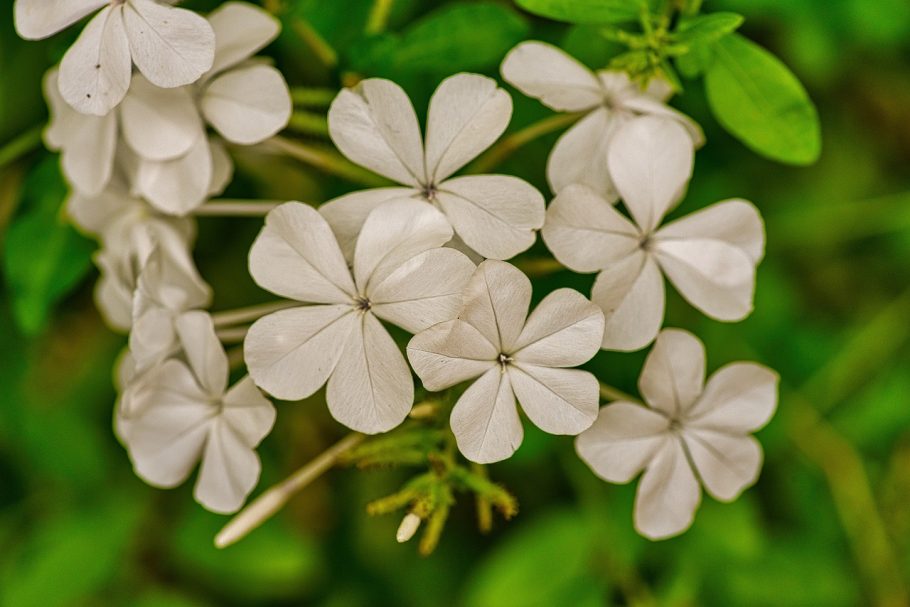Jasmine flowers have been prized for their beautiful, sweet fragrance for centuries. From ancient civilizations to modern-day practices, these flowers have been used for their cultural and spiritual significance. But beyond their aesthetic appeal, jasmine flowers hold mystical properties that have captivated people throughout history.
The history of jasmine flowers dates back to ancient civilizations such as Egypt, Greece, and Rome. In these societies, jasmine was valued for its fragrance and essential oil, which was used for medicinal purposes. Jasmine flowers were also popular in royal gardens, and their beauty symbolized elegance and purity.
In Hinduism, jasmine flowers are associated with the goddess Saraswati and symbolize purity, wisdom, and spiritual awakening. In Persia, jasmine flowers represent love and are used in wedding ceremonies, while in China they symbolize beauty and grace. Today, jasmine is still used in aromatherapy and meditation for its relaxing properties, promoting feelings of happiness and well-being.
In mystical practices, jasmine flowers are believed to enhance psychic abilities and intuition, aid in spiritual growth and awakening, and connect practitioners with their higher selves. Jasmine flowers have a deep-rooted significance in society, and their mystical properties continue to fascinate and inspire people today.
The History of Jasmine Flowers
Jasmine flowers have been around for centuries and were first used by ancient civilizations such as Egypt, Greece, and Rome. Known for their fragrant scent, jasmine flowers were commonly used for medicinal purposes, and the essential oil extracted from the flowers was highly valued. It was used for various ailments such as respiratory problems and childbirth.
The beauty of jasmine flowers was also highly appreciated, and they were often found in royal gardens, symbolizing elegance and purity. In ancient times, jasmine flowers were even used in religious ceremonies and were considered sacred.
Throughout history, jasmine flowers have remained highly valued and have been an important part of different cultures and traditions.
The Cultural and Spiritual Significance of Jasmine Flowers
Jasmine flowers have a rich cultural and spiritual significance that is celebrated in many societies. In Hinduism, jasmine flowers are known for their association with Saraswati, the goddess of wisdom, knowledge and learning. They are seen as a symbol of purity, spirituality, and enlightenment. In Persia, jasmine flowers represent love and are used prominently in wedding ceremonies. The beauty of the flower is seen as a symbol of the graceful union between two people in love, and jasmine garlands are hung around the necks of the bride and groom as a symbol of their marriage union.
In China, jasmine flowers are celebrated for their beauty and grace. The flower is admired for its pure innocent beauty and is used to symbolize the feminine virtue of elegance, grace and purity. Jasmine flowers are also a popular motif in traditional Chinese art and are used in many decorative applications.
These are just a few examples of the diverse cultural and spiritual significance of jasmine flowers. They are revered for their beauty, delicacy and fragrance, but their importance goes beyond their aesthetic value. Jasmine flowers have a deep symbolic meaning that continues to inspire and captivate people around the world.
Jasmine Flowers in Modern Day Practices
Nowadays, jasmine flowers are commonly used in modern-day practices such as aromatherapy and meditation. Their essential oil is believed to have calming and relaxing properties which make them perfect for reducing stress and anxiety. People use this oil in diffusers in their homes or apply it topically as massage oil. Additionally, the delicate fragrance of jasmine flowers is said to enhance mood and promote feelings of happiness and well-being. That’s why they are frequently used in spas, yoga studios, and meditation centers.
It’s worth noting that jasmine essential oil shouldn’t be used undiluted on the skin as it may cause irritation or allergic reactions. It’s always recommended to blend it with a carrier oil first before use. Furthermore, pregnant women should avoid using jasmine essential oil as it may stimulate contractions.
In conclusion, jasmine flowers are not only aesthetically pleasing but also possess numerous health benefits. They are widely used in modern-day practices such as aromatherapy and meditation due to their calming and uplifting properties. However, it’s essential to use them with caution and consult a healthcare professional before use, especially if you’re pregnant or have a health condition.
The Mystical Properties of Jasmine Flowers
Jasmine flowers have been revered for their mystical properties for centuries. In many mystical practices, jasmine flowers are believed to have the ability to enhance one’s psychic abilities and intuition, and aid in spiritual growth and awakening. The scent is also believed to have a calming effect and promote relaxation, making it a popular choice for aromatherapy and meditation.
Many spiritual practitioners use jasmine flowers in rituals and ceremonies to connect with their higher selves and tap into the mystical properties of the flower. In Hinduism, jasmine flowers are associated with the goddess Saraswati and symbolize purity, wisdom and spiritual awakening. They are also used in wedding ceremonies in Persia as a symbol of love, and are thought to represent beauty and grace in China.
The mystical properties of jasmine flowers are said to have a powerful influence on the mind and spirit, and have been used for centuries in mystical practices. As our connection to nature increases, more and more people are turning to the mystical properties of jasmine flowers for their calming and spiritual benefits.
The Bottom Line
Overall, jasmine flowers have a deep and ancient significance that continues to captivate people today. Whether you are using them for their delightful fragrance or for their mystical properties in spiritual practices, these flowers have a timeless allure. They symbolize purity, love, and spiritual awakening across cultures and religions. In modern-day practices, jasmine flowers are used in aromatherapy and meditation to promote relaxation and well-being.
It’s clear that the beauty and significance of jasmine flowers will continue to enchant people for many years to come. Whether you’re a lover of florals or a spiritual seeker, there’s something truly magical about this lovely flower. So the next time you come across jasmine flowers, take a moment to appreciate the deep cultural and spiritual significance they hold.





